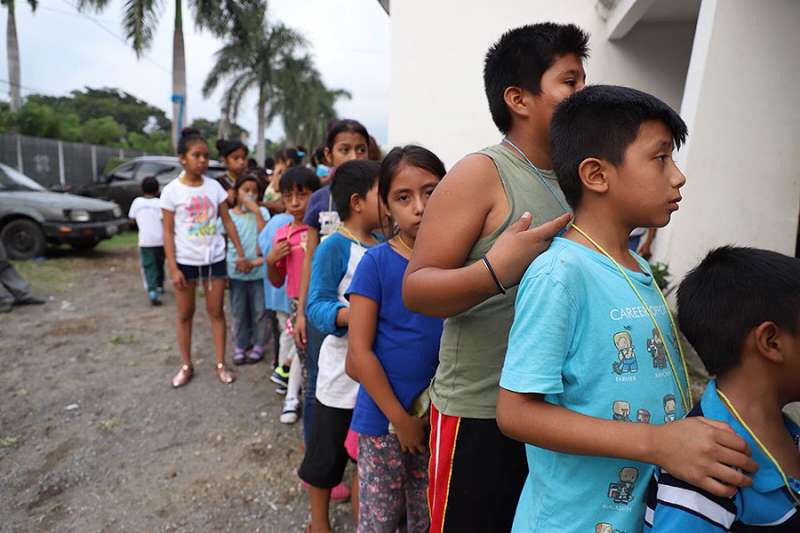Three Catholic churches in Guatemala have opened their doors to shelter victims of Sunday’s sudden volcano eruption that devastated villages and left at least 70 people dead.
“What I’ve seen so far is complete destruction. Hundreds of people have lost everything,” said Luis Rolando Sanchez, Catholic Relief Services’ emergency coordinator for Latin America.
Both Catholic Relief Services (CRS) and Caritas Escuintla have staff on the ground in Guatemala providing hot meals, food, water, and other basic necessities to the displaced, as rescuers continue to search for survivors in villages buried in ash.
“The Church sprang into action immediately by opening shelters and getting lifesaving relief to those who need it. But there is a lot of work to do with so many people impacted by this disaster,” Sanchez continued. Local authorities estimate that nearly 2 million people were affected by the Volcan de Fuego or fire volcano.
All three of the church shelters are located in Escuintla, Guatemala, near ground-zero for the volcano, whose eruption spewed ash clouds nearly 33,000 feet into the air. The Escuintla district, along with Chimaltenango and Sacatepéquez, are among the areas most affected by the blast, according to CRS.
Kim Pozniak, Catholic Relief Services’ communications coordinator, told CNA that their staff on the ground in Guatemala heard many tragic stories as more than 100 people arrived at one of the church shelters in Escuintla on June 4.
One woman, Julia, could barely hold back tears as she explained to Catholic Relief Services staff that she had lost her daughter, granddaughter, and son-in-law.
Julia had stayed behind with her three granddaughters while their parents left the house to go sell pineapples, the family’s source of livelihood, when the volcano erupted, burying the parents under lava.
“Everyone has lost someone,” said Pozniak, “People are traumatized.” She added that more volunteers from other parts of Guatemala are beginning to arrive at the shelters to provide some trauma relief.
“Despite the unimaginable damage and heartbreak, I have hope that these communities will recover. People in Guatemala are nothing if not resilient,” said Sanchez.
“I encourage U.S. Catholics to pray for their brothers and sisters who are suffering through this terrible ordeal,” he continued.
Pope Francis said he was “deeply distressed in hearing the sad news of the violent eruption” in a telegram on June 5 and offered his prayers for the victims and their families.
Geologist Trevor Nace explained that the Volcan de Fuego’s eruption of felsic lava was much more sudden, vicious, and deadly than Hawaii's Kilauea volcano, which has been slowly erupting for the past month.
“Combined with the steep slopes and high rainfall in Guatemala, mud, and rock is easily swept down slopes only to destroy more homes and threaten more lives,” Nace said in an article on Forbes.
Guatemalans have been warned to avoid waterways, where ash and water can combine to create mudslides that can flow up to 120 miles per hour.

